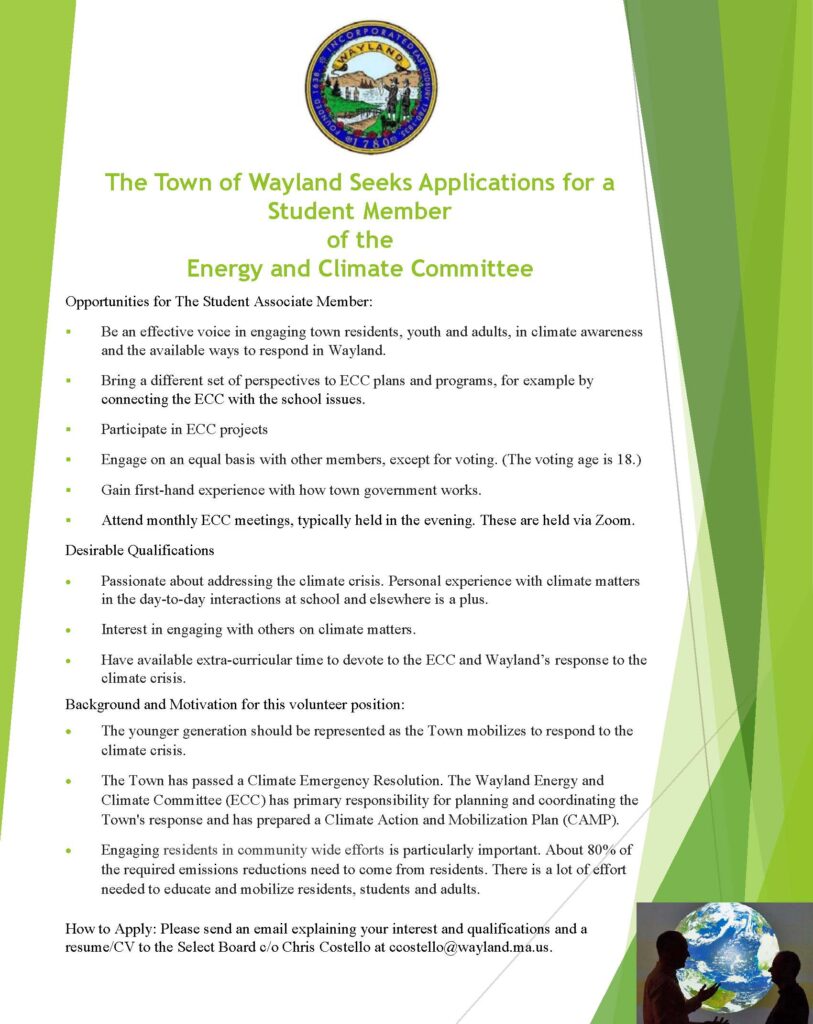Wayland Energy and Climate Committee Seeking Applicants for Student Member
WAYLAND — The Wayland Energy and Climate Committee (ECC) is pleased to announce that it is now accepting applications for a student member.
Student members will be expected to engage community members in climate awareness initiatives, participate in ECC projects, attend monthly virtual ECC meetings which are usually about one and a half hours, and bring a different perspective to plans and programs. The chosen candidate will also gain first-hand experience on how Town government works during the year-long term.
Applicants should be passionate about addressing climate change and have available extracurricular time to devote to the ECC and Wayland’s response to the climate crisis.
They should anticipate being involved in about two hours of meetings monthly, as well as prep and projects for a few additional hours.
“It is important for community members of all ages to be represented as the Town works to respond to the climate crisis because these issues will affect future generations. The younger generation, especially, will bring a unique perspective to this issue,” ECC Co-Chair Ellen Tohn said. “We encourage students who are interested in responding to climate change and making a difference to apply.”
Interested students are welcome to attend an ECC meeting to learn more about the members of the committee and what they do. Meetings are open to the public and can be found on the Town Calendar.
To apply, students should send an email explaining their interests and qualifications, along with their resume to the Select Board c/o Chris Costello at ccostello@wayland.ma.us. To view the complete position description, please click here.
About the Energy and Climate Committee
The Town of Wayland passed a Climate Energy Resolution at the 2021 Annual Town Meeting. The ECC is responsible for planning and coordinating the Town’s response and has prepared a Climate Action and Mobilization Plan (CAMP). The goal of the CAMP is to reduce greenhouse gas emissions from Town buildings, residences and businesses by a minimum of 50% by 2030.
###



